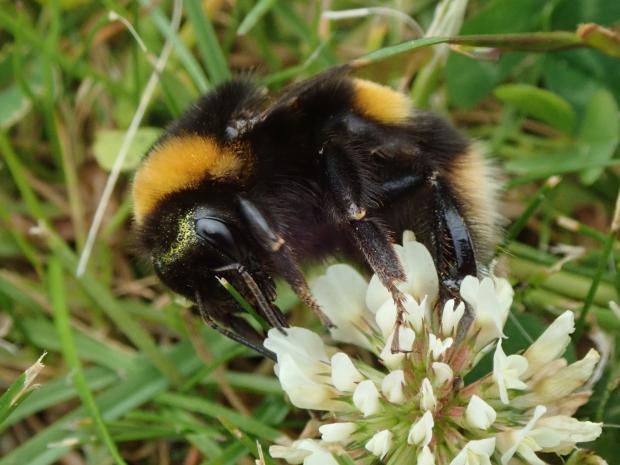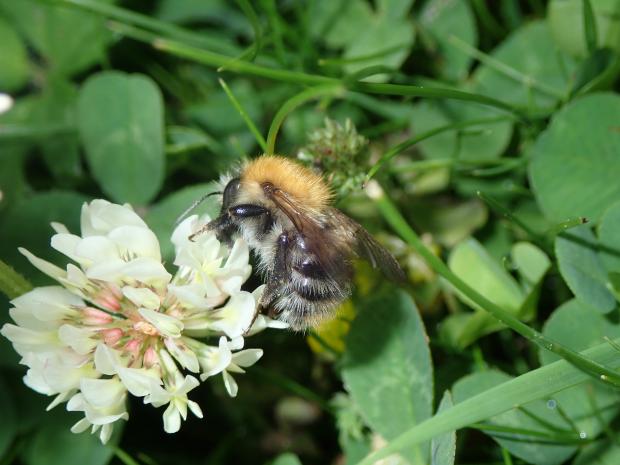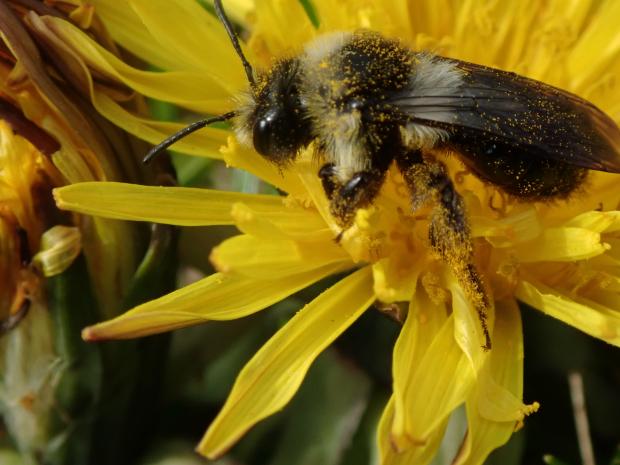3 Good Reasons as to why you Don't Step on a Bee!
Areas of Expertise:
Grassland and Plant Science,
Environmental Protection
Service:
Specialist Advice
Don't Step on a Bee Day is on 10th July. AFBI Entomologists want to explain why you should not step on a bee.
- Bees are pollinators - They collect pollen from flowers as a food source, but also distribute it to other flowers and plants. This is particularly important in fruit orchards and it would be disastrous for food economy if there was a drastic fall in bee numbers. The United States Department of Agriculture estimates that pollinators like bees and butterflies help pollinate roughly 35 percent of the world's food crops - including fruits and vegetables. Albert Einstein purportedly said “If the bee disappears from the surface of the Earth, man would have no more than four years left to live”. Whether this is an exaggeration or not, the effect of pollination on the world’s environment cannot be underestimated!
- Honey bees produce honey! - Honey bees collect nectar, from flowers, and it passes into an expandable pouch called the 'honey stomach’. This is the pre-digestive part of the digestive tract that honey bees use to bring water and nectar to their hive and produce honey. It is stored in honeycomb and removed by beekeepers to consume themselves or to sell. Honey is essentially pure sugar, with no fat and only trace amounts of protein and fibre; it contains small amounts of some nutrients but is a good source of energy – in moderation!
‘Manuka’ honey has been shown to have health benefits such as wound-healing, supporting gut health, antiviral properties and soothing a sore throat. - You could get stung - Honey bees and bumblebees will avoid confrontation and only sting if they are threatened or provoked. Bumblebees’ stings, like wasps, have no barbs - like on a fishing hook - and can therefore sting you more than once; however, if a honey bee stings it is as a last resort as their stings contain a barb which remains in skin still pumping venom. The honey bee, as a result of this, becomes detached from its sting and dies. Only female worker bees and queen bees will sting. The life span of worker honey bees only ranges from five to seven weeks, so they have a short enough time without it being ended prematurely by a foot!


